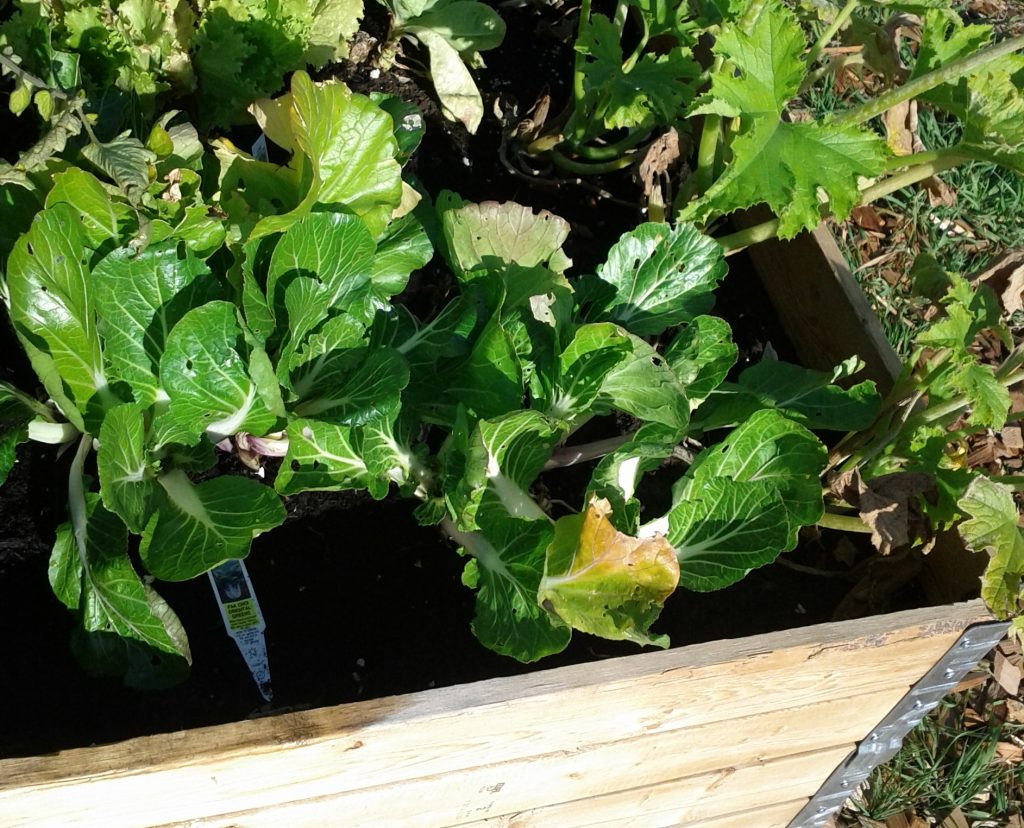This past week in Vancouver, I broke out a dress for the first time in 2013. It was a beautiful, warm and sunny day – the kind of day that fools visitors into thinking that Vancouver is bright and cheery all the time. 😉 It reminded me that it is about time to start thinking about gardening again.

Our 2012 vegetable garden
One mistake that novice gardeners tend to make is to plant incompatible plants too close together. Like people, not all plants get along with each other. Brian and I try to practice companion planting. There’s a lot of reasons for this, but some of the main ones include:
- Competition: Some plants are better at competing for nutrients, space or pollination. Think of blackberry bushes for example – They are very good at competing for space and can easily overtake an area over time. You don’t want to plant anything so aggressive close to other plants because pretty soon, you’ll have nothing left.
- Nutrient uptake: Different plants require different amounts of nutrients like phosphorus and nitrogen. Other plants are good at processing nutrients into a form that is usable to other plants. So, it is often good to plant nitrogen fixing plants close to plants that use nitrogen heavily, for example. For example, planting corn (a nitrogen consumer) close to beans (a nitrogen fixer) makes for happy crops.
- Pest control: I don’t like to use pesticides, so I try to plant plants that can control pests naturally. Some plants attract predators, like ladybugs and hoverflies, that eat pests, like aphids. Other plants deter pests by being noxious or even toxic, like many onions and herbs. I often put onions and garlics throughout my gardening plots, simply to help deter pests.
- Pollination: Finally, successful gardening requires pollinators! Depending on the types of flowering plants you choose, you’ll attract different pollinators which may or may not be beneficial to your crop plants.
But what you really want to know is what to plant with what, right? So here’s a few tried and true combinations that might help you out in your own garden:
- Asparagus: Dill, coriander, tomatoes, parsley, basil, marigolds
- Beans: Corn, lettuce, rosemary, dill, mint
- Brassicas (cabbage, cauliflower, broccoli): dill, onion, garlic, rosemary
- Tomatoes: Basil, beans, carrots, chives, garlic, marigold, onion, parsley, and sage
- Squash: corn, beans, radishes
In terms of pest control, consider planting the following (cautiously):
- Marigolds – repels nematodes (but attracts snails!)
- Petunias – repels aphids and certain beetles
- Sunflowers – to control aphids
- Nasturtiums – to attract predators
How is everyone’s 2013 garden shaping up? Any tips?
Posted in: Food and Grocery
Tagged with: companion planting, controlling pests in a garden, how to make sure my plants are polinated, how to plant a garden, small space gardening, what plants act as pest control?, what plants should be planted together?, what to plant together in a garden, what to plant with asparagus, what to plant with beans, what to plant with cauliflower, what to plant with squash, what to plant with tomatoes, which plants go with which?